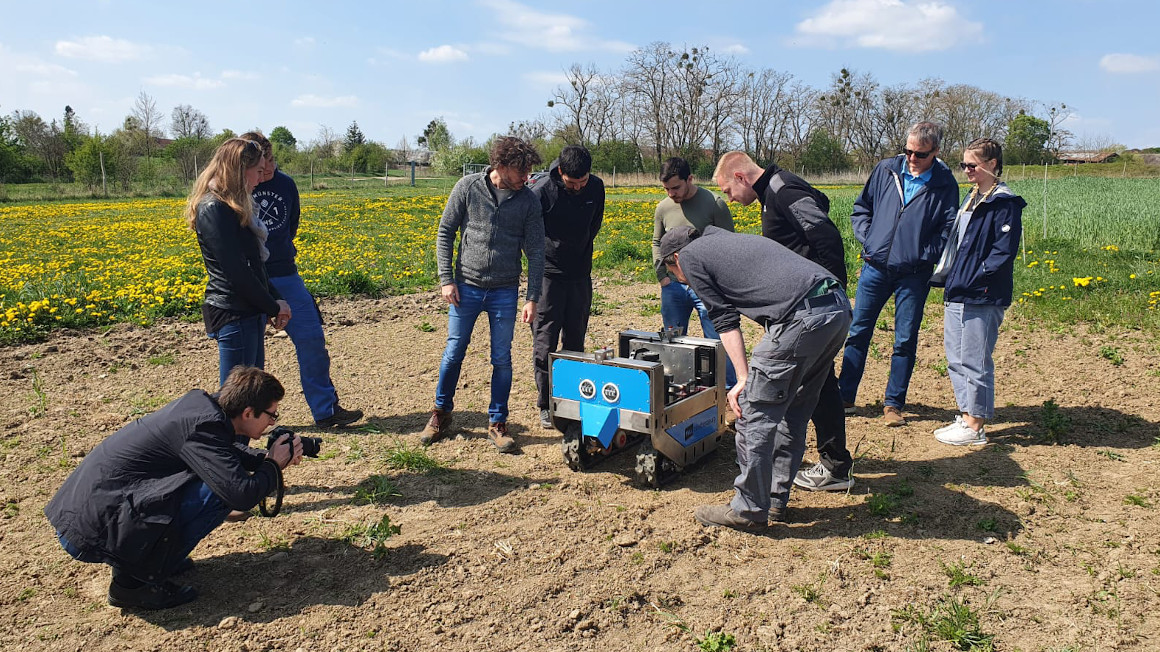Remove weeds from sugar beets
A field robot that independently detects and removes weeds has successfully passed an initial test run in the Uckermark region.

Sugar is an integral part of many foods and it is hard to imagine a household without it. The white crystalline sweetener is obtained from sugar cane, but also from the domestic sugar beet. However, the cultivation of the sugar beet is laborious, because weeds have to be removed regularly and is therefore declining in some regions. In conventional farming, pesticides are used that are harmful to the environment. In organic farming, the pests are removed with a hoe. Both methods are not only time-consuming, but ultimately expensive. Researchers at the University for Sustainable Development in Eberswalde (HNEE) therefore want to get to grips with the weeds in the sugar beet field using artificial intelligence and robotics.
Practical test for chipping robot in sugar beet field
"We have developed a robot that autonomously drives over the area to remove weeds from sugar beets," says Amanda Birkmann from HNEE. The fully automated robot is battery-powered and also has solar panels that can use solar energy to power it in good weather. The chopping robot has now been tested in sugar beet cultivation in the Uckermark region for the first time in early May. "We have seen that the hoeing robot can cope with the difficult terrain and that the AI-based image analysis works. It can reliably distinguish weeds from sugar beets," reports Dr. Marcin Brzozowski, an AI expert at IHP - Leibniz Institute for Innovative Microelectronics in Frankfurt (Oder).
Use in organic farming planned
The chipping robot was developed as part of the zUCKERrübe project, primarily to improve sugarbeet cultivation in organic farming. Here, not only the sugar from the beet is in high demand, but also the improved soil properties associated with cultivation.
Drone to support hacking robots in the future
Following the successful test, the device, which weighs around 100 kilograms, is to be used regularly in the sugarbeet field in the next growing season. The researchers want to compare the efficiency of weed control with other methods, such as the use of a row finger hoe. However, they also want to test whether a drone can be used to support the hoeing robot. In the future, this will detect the robot's location and tell it where there is a weed problem. "This will allow both to be used in areas with poor cellular reception, because weed detection is done on drones and not on cloud servers," adds Marcin Brzozowski.
bb


